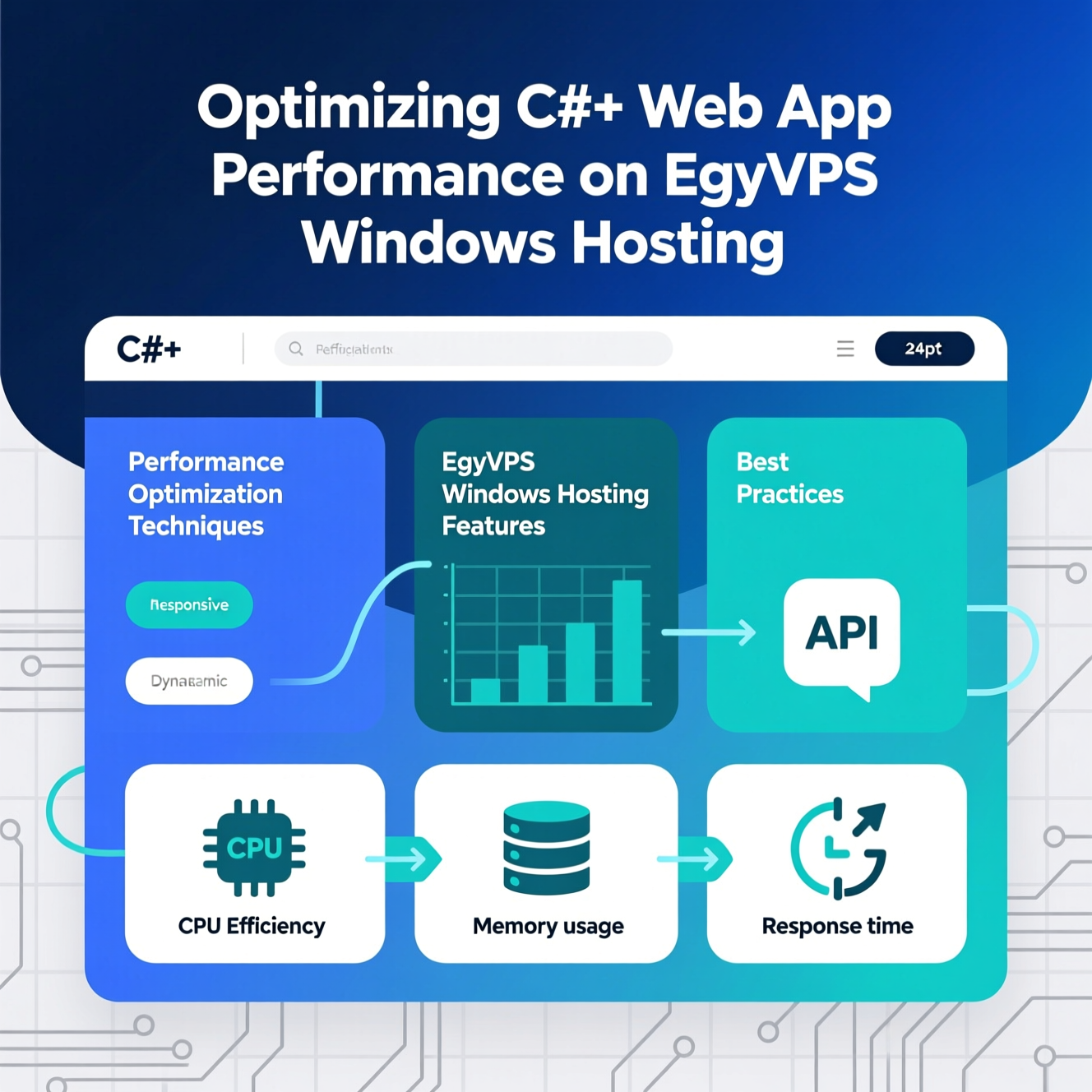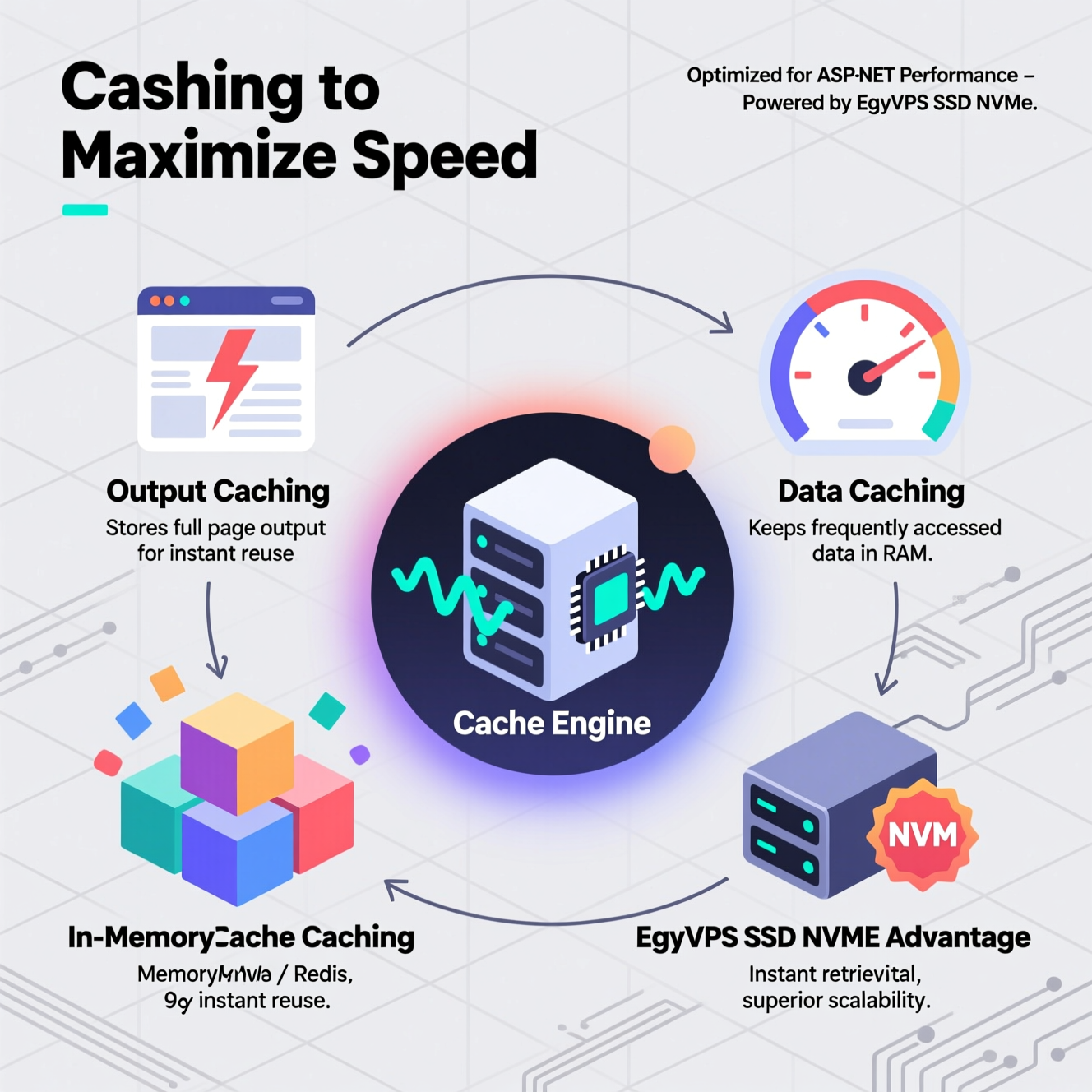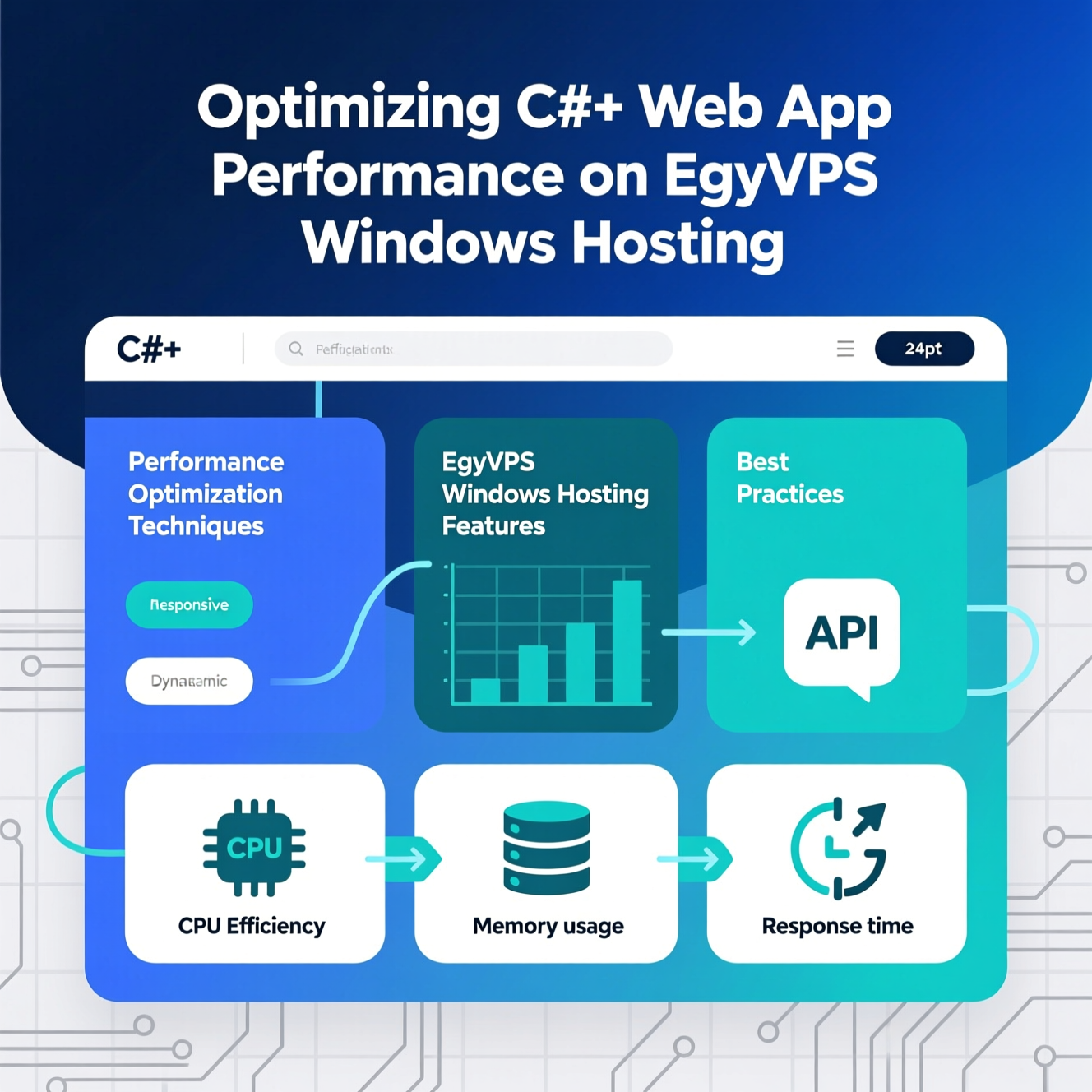Improve loading speed, memory usage, and server efficiency with smart configurations.
EgyVPS Windows Hosting delivers lightning-fast performance powered by SSD NVMe servers built for modern web applications.

In today’s fast-paced web development world, performance optimization has become a crucial factor for success.
Users expect websites to load within seconds—any delay can result in lost traffic and lower engagement.
If you’re developing with C# or ASP.NET, optimizing performance isn’t just an option—it’s a necessity for maintaining application stability and delivering a smooth user experience.
In this guide, we’ll explore the most effective strategies for improving C# web app performance, including memory management, caching, compression, threading, load balancing, and the powerful role of EgyVPS Windows SSD NVMe servers in boosting speed and reliability.
Memory is the core of your application’s performance. Inefficient memory use can cause lag or even application crashes.
Here are key practices to manage memory effectively in C# applications:
Avoid unnecessary object creation: Reuse objects instead of creating new ones repeatedly.
Use StringBuilder: For frequent text modifications to reduce memory allocation overhead.
Avoid Boxing and Unboxing: These conversions between value types and objects are costly in performance.
Monitor the Garbage Collector (GC): Use profiling tools to analyze GC behavior and reduce heavy memory allocations.
Choose the right data structures: For example, Dictionary<TKey, TValue> for fast lookups or List for lightweight operations.
Proper memory management can reduce response time by up to 40% in large-scale applications.
Caching is one of the most effective techniques to boost ASP.NET application performance. It temporarily stores frequently accessed data, reducing the need for repeated database calls.
Output Caching: Stores rendered pages or sections for quick retrieval.
Data Caching: Keeps frequently requested database data in memory.
In-Memory Caching: Implemented with MemoryCache or distributed systems like Redis Cache.
Reduces server load and CPU usage.
Enhances response time for end users.
Minimizes database queries.
With EgyVPS SSD NVMe servers, caching performance becomes even faster, allowing instant data retrieval and better scalability.

Smaller file sizes mean faster page loads. You can enable data compression in IIS or use middleware in ASP.NET Core, such as:
Gzip: Widely supported and suitable for most use cases.
Brotli: Offers higher compression rates, especially for text and HTML files.
Tip: Avoid compressing already compressed files (like .zip or .png) as it won’t improve performance.
Efficient thread management ensures your app runs smoothly under heavy load.
Use asynchronous programming with async and await to prevent blocking operations.
Avoid using Thread.Sleep() in critical operations.
Use the Thread Pool to reuse threads and save resources.
Implement Task Parallel Library (TPL) for parallel processing.
Monitor performance using tools like Visual Studio Profiler.
As your user base grows, handling high traffic efficiently becomes vital.
A Load Balancer distributes incoming traffic across multiple servers to maintain stability and uptime.
Prevents server overload or downtime.
Ensures even traffic distribution.
Enhances overall response times.
You can implement load balancing using Nginx, HAProxy, or cloud-based solutions like Azure Traffic Manager.
The foundation of high performance starts with powerful infrastructure.
EgyVPS Windows Hosting leverages NVMe SSD drives, the next-generation storage technology known for exceptional speed and reliability.
Read/write speeds up to 3500 MB/s.
Ultra-low latency compared to SATA SSDs.
Consistent performance even under heavy workloads.
Lower power consumption and longer lifespan.
These advantages make EgyVPS Windows Hosting ideal for C# and ASP.NET applications that demand top-tier performance and speed.

Beyond code optimization, front-end performance plays a big role in user experience.
Use a CDN to distribute static content closer to users.
Enable browser caching to reduce repetitive requests.
Combine and minify CSS and JavaScript files.
Compress images before uploading.
Track site speed with tools like Google Lighthouse and GTmetrix.
Optimizing C# web applications goes far beyond writing efficient code—it’s about building a complete strategy that covers memory management, caching, compression, threading, and infrastructure.
With EgyVPS Windows Hosting powered by SSD NVMe, you can achieve faster load times, greater stability, and exceptional user experiences.
Choose performance. Choose EgyVPS — the hosting solution built for developers who demand speed and reliability.
هل تحتاج إلى Windows VPS سريع وآمن وبسعر مناسب؟
شركة EgyVPS بتوفرلك سيرفرات ويندوز جاهزة للاستخدام فورًا.
? تواصل معنا عبر: 201001197157
? أو زور موقعنا: https://egyvps.com